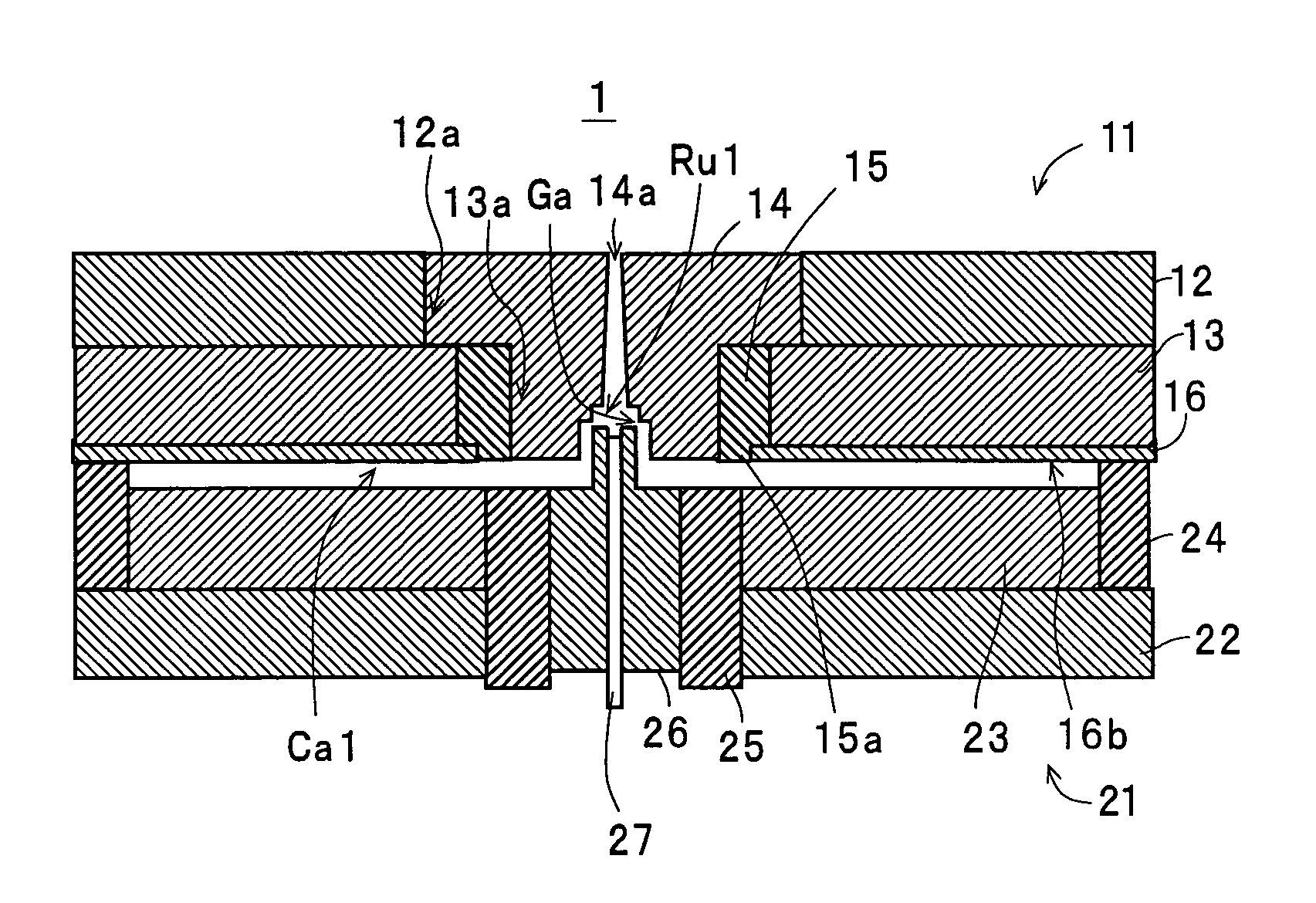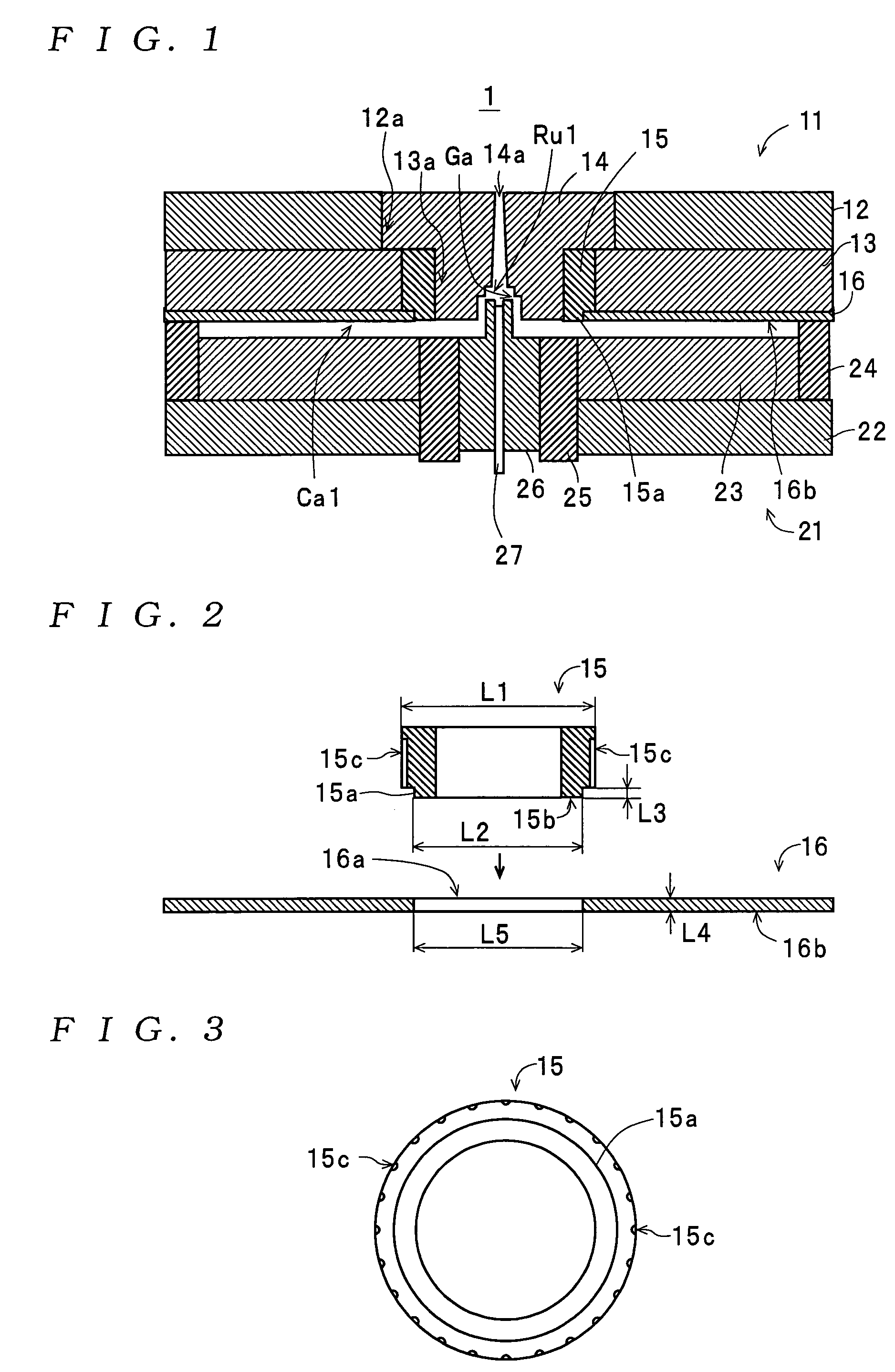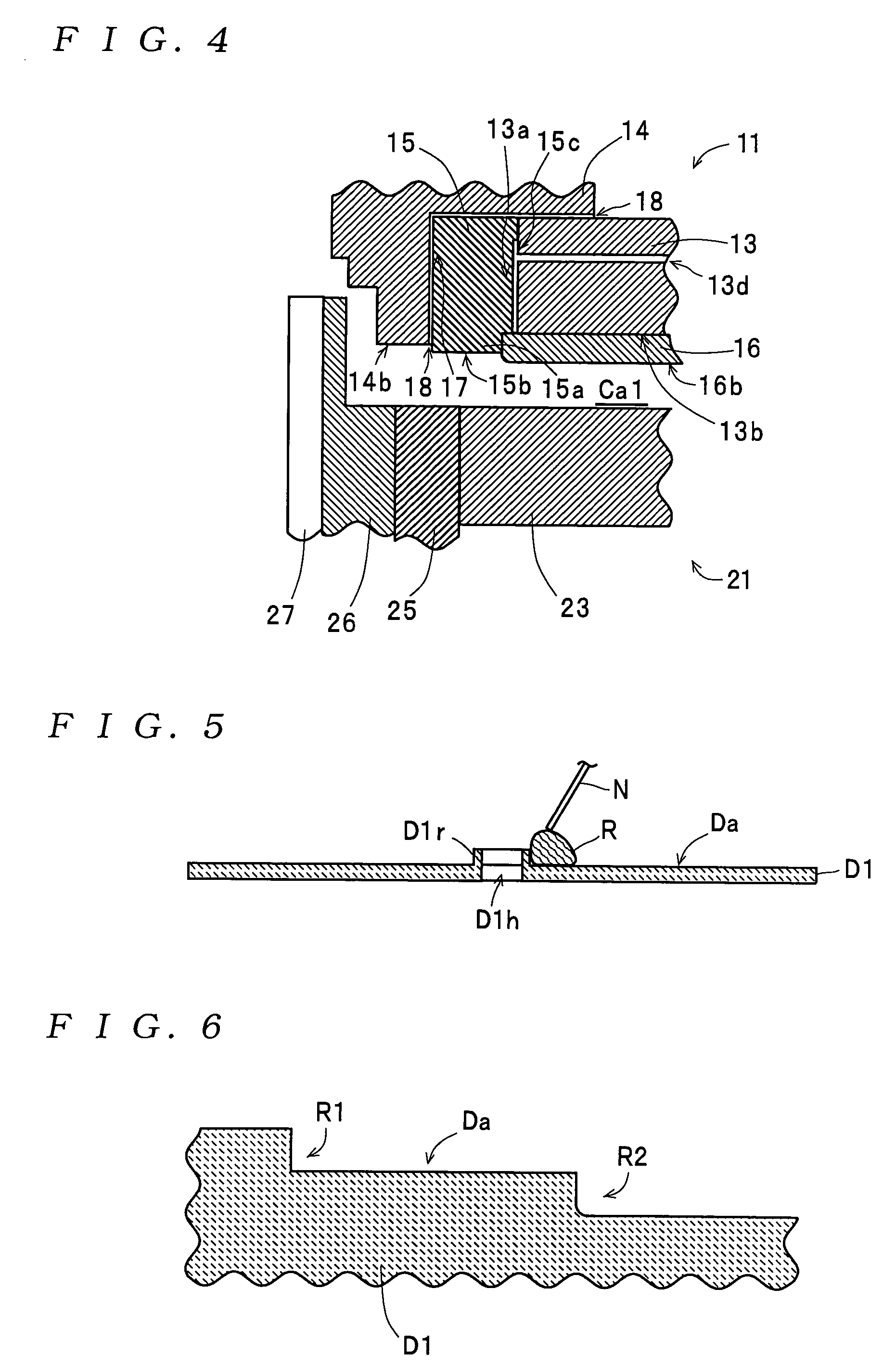Mold component and mold assembly
a mold and component technology, applied in the field of mold components and mold assemblies, can solve the problems of uneven thickness of resin r and formation of coating streaks, reduced outer diameter of stampers, and difficulty in completely preventing the occurrence of the above inconvenience, and achieve uniform thickness
- Summary
- Abstract
- Description
- Claims
- Application Information
AI Technical Summary
Benefits of technology
Problems solved by technology
Method used
Image
Examples
Embodiment Construction
[0035]The invention will now be described in detail with reference to the drawings showing preferred embodiments thereof. It should be noted that the component parts and elements identical to those of the conventional mold assembly 51 are designated by identical reference numerals and detailed description thereof will be omitted.
[0036]First, the construction of a mold assembly 1 will be described with reference to drawings.
[0037]Referring first to FIG. 1, the mold assembly 1 is comprised of a fixed mold (first mold) 11, and a movable mold (second mold) 21 which can move to and away from the fixed mold 11. Further, the mold assembly 1 is configured such that a substrate D1 for an optical recording medium (hereinafter simply referred to as “the substrate D1”) formed with a central hole D1h and a hollow cylindrical protruding portion D1r, as shown in FIG. 5, can be molded by causing an injection molding apparatus, not shown, to inject a molten resin material into a cavity Ca1 formed by...
PUM
| Property | Measurement | Unit |
|---|---|---|
| Diameter | aaaaa | aaaaa |
| Height | aaaaa | aaaaa |
Abstract
Description
Claims
Application Information
 Login to View More
Login to View More - R&D
- Intellectual Property
- Life Sciences
- Materials
- Tech Scout
- Unparalleled Data Quality
- Higher Quality Content
- 60% Fewer Hallucinations
Browse by: Latest US Patents, China's latest patents, Technical Efficacy Thesaurus, Application Domain, Technology Topic, Popular Technical Reports.
© 2025 PatSnap. All rights reserved.Legal|Privacy policy|Modern Slavery Act Transparency Statement|Sitemap|About US| Contact US: help@patsnap.com



